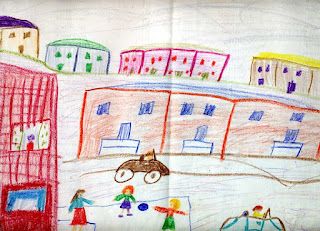Evolution
"The artist is nothing without the gift, but the gift is nothing without work."
—Emile Zola
I came across a website which reviews/describes some of the Big Names in daily painting - Raymond Logan's Daily Painter Review (Logan himself is a pretty big name).
The site isn't active anymore — the most recent post is more than a year old — but it is well worth looking at. Comparing an artist's work from one, two, or three years ago and her work today is revelatory. They were all great painters three years ago, and they are even greater painters now. For most of them, their style didn't change drastically, but evolved into something that makes their statements clearer, more definite, more confident.
It makes me think about the concept of developing a style. That's the advice I hear often, that for an artist to be successful (what defines success is a whole ’nother conversation...) they need a particular style that identifies them. Which I cannot argue with: an artist whose every painting is one-off isn't going to be recognized; it's too hard to categorize and store them in one's brain.
"Developing a style" is something I always thought of as a deliberate process. You "decide" how you're going to paint, and start doing it. Yes, feel free to laugh, that's a pretty silly idea. In my limited experience I've come to realize that the style develops itself. The artist works; the work evolves. You try different things, you fail, you try again, you have some limited success, you get some crazy ideas from other artists, you try a different thing, you fail, you try again... Twenty years later you think "where did the time go?" and all of a sudden you've got "a style" :-)
Probably there's a nice medium to be reached between pure experimentation and a deliberate process of learning — meandering versus a focused path. A balance between thinking about painting and actually painting.
There's an analogy I always used to make when I was [trying to] learn to play drums. You can listen to all the tracks you want, watch as many performances as you want (and you should), but eventually it comes down to Stick Time. The amount of time you spend with drumsticks in your hand. Learning from others is essential, but at some point you have to start learning from yourself. The same is true when you're painting. You can and should watch demos, attend workshops, read books, look at other paintings—but what it really comes down to is the amount of time you spend with a paintbrush in your hand.
Which I should probably be doing right now, instead of writing...
Here's where I found the link for the Daily Painter Review - lots of great stuff here: http://www.dailypaintworks.com/artist/resources
and here's an awesome drum groove for you, from the great Bernie Purdie:



Comments
Post a Comment
I love to read your comments - thanks for your feedback!